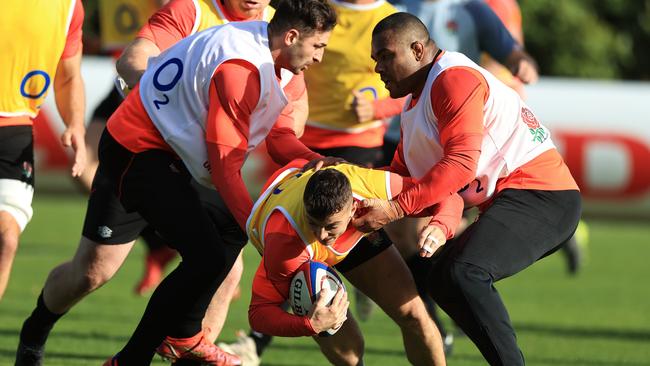
The pressure may be off England coach Eddie Jones to some extent, and his new-look team, but for my money they have a lot of improving to do.
They certainly dismantled a brave Tonga at Twickenham; but the penalty count! England 19, Tonga 9. Beyond absurd.
A somewhat disorganised England outfit may not have satisfied those in English Rugby calling for Jones’ head after his team lost to Scotland, Ireland and Wales in the Six Nations for the first time since 1976.
The Wallabies v Scotland match was a bit like the Curate’s egg — good in parts and not good in others.
The Wallabies did have a huge call go against them when a Michael Hooper try was disallowed; but when you are playing in the northern hemisphere, it seems that referees believe they are the game and not the players.
We seem to have no trouble winning ball, but trouble using it. Too many of the players were running across the field.
Someone needs to tell them the goalposts are in front of them, not to the side of them.
From what I saw of England, and I watched them closely, the Wallabies can bounce back from the disappointment of the defeat at Murrayfield.
Wales, in their performance against a dour South Africa, where they lost virtually on the bell, looked a far more formidable outfit than England.

Nonetheless, the Wallaby pack are going to have to step up. They were outmanoeuvred at scrum time against the Scots and were caught out with a powerful shift drive at the front of the lineout, which resulted with a try to Scotland.
England always have a great scrum and love to scrum for penalties. Unfortunately, as I have been saying for more than a year, Taniela Tupou is a key player. Why he isn’t in the starting line I have no idea.
However, having left the field with concussion, Tupou must be in some doubt for the England game.
England’s young loosehead prop, Ellis Genge, is an outstanding talent, but he is not in the Tupou class on the right side of the scrum.
England also have a few tricks at the lineout. They love to drive their mauls, which might make the England fans happy, but not too many others watching the game; and they have some clever peels, from the lineout, designed to attack around the fringes.
We will need our A-game in defence at lineout time. England will play three lineout targets, Maro Itoje, Jonny Hill and Courtney Lawes. All are giants and provide a triple aerial threat, so England will be looking to dominate the lineout and force our backline to play with scrappy ball.
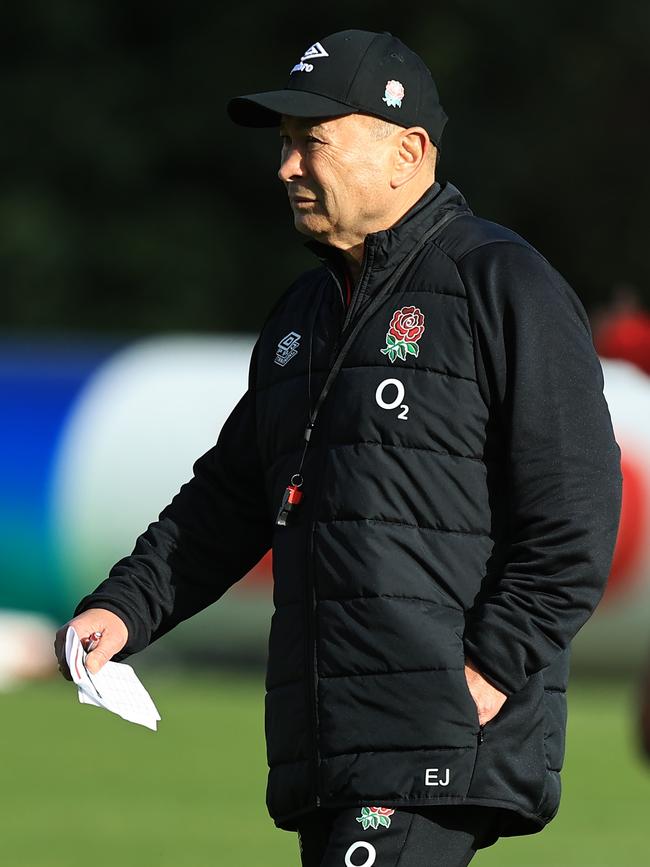
If I were coaching the Wallabies, I would be targeting the young guns. Marcus Smith is the new number 10, a great talent, but it took him a while to find his stride against Tonga.
Under pressure, he will throw passes that can be intercepted if our defence takes space away from him with quick line speed; and when we have the ball, we must make the number 10 tackle.
In their back three, Freddie Steward and Adam Radwan are very gifted players but they are also rookies. I would be testing Radwan in the air on England’s right wing. He is certainly quick with the ball in hand, but he must be made to face an aerial test; then challenge the new fullback, Steward, but not by kicking in the air.
Steward is so tall he would be at home in the England lineout.
He will outjump anyone under highballs, but he will struggle to cover anything kicked through on the deck. Put the ball in behind their backline and make Steward play off the ground, the acid test for any fullback. So, highballs on Radwan, grubbers for Steward.
I enjoy seeing the Wallabies at Twickenham. It takes me back to 1984 when my Grand Slam Wallabies had a big win over England, scoring three tries to none and winning 19 to 3.
Some of you may recall Mark Ella scoring the first try from a set play scrum move.
Mark was at number 10. He wrapped around Michael Lynagh, who was playing at inside centre.
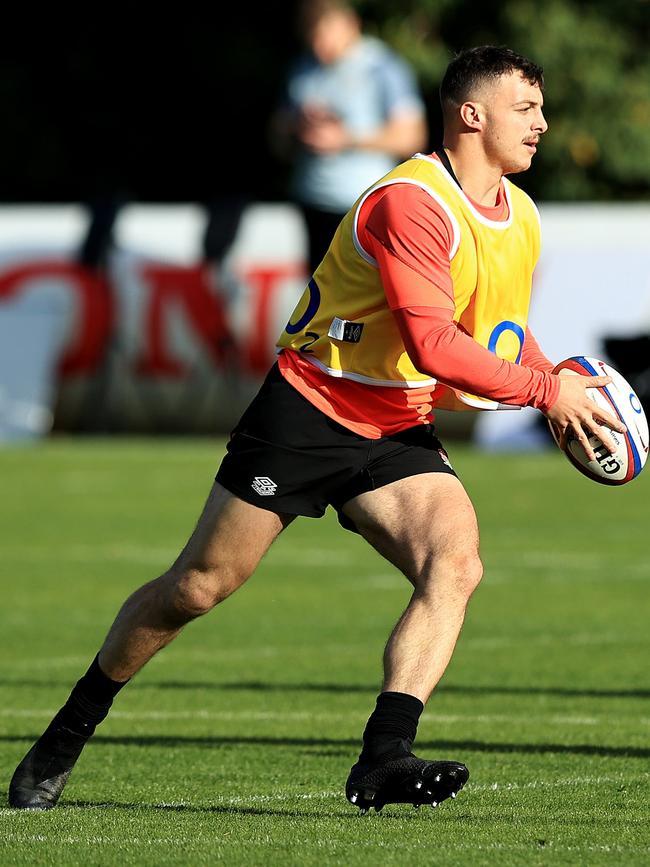
Mark then had Roger Gould running a thunderous line, which drew the attention of England’s midfield, and when Mark saw daylight he stepped through to score near the posts. Pure brilliance from Ella. The second try was from a collapsed maul.
Nick Farr-Jones shovelled the ball to Ella, who passed to Lynagh.
Lynagh ran a dummy switch with Andrew Slack and Gould took a pass running wide into the space. Roger drew a defender and put Matthew Burke away.
Burke then offloaded back inside to Gould, who popped the ball to Lynagh, running a great outside support line, and Lynagh scored in the corner.
The third and final try started with an English turnover out wide. Gould scooped up the ball and flung a pass that Ella, literally, picked off his bootlaces.
Ella then found David Campese, who weaved his way towards the corner with Rory Underwood in pursuit.
Backing up on the inside, was the ever-present Simon Poidevin. Campo popped a pass for Simon to score and wrap up the match.
Hopefully those of you who remember that game enjoyed the trip down memory lane.
For those of you too young to remember, the lesson is simple.
Great players don’t need to be told how to play; they just need to be encouraged to work together and play what is in front of them. It is worth noting that the big names, Ella, Lynagh, Gould and Campese all stepped up in that famous Wallaby win.
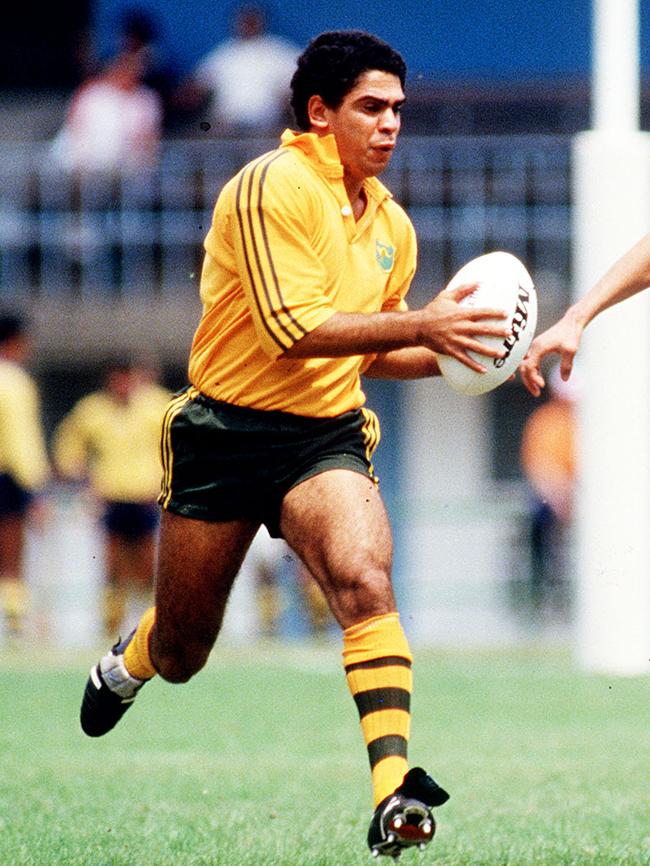
The forwards provided the platform; the backs did the rest.
Some things in our game don’t change. My final comment for this week is around the issue of concussion.
No doubt you will have heard last week that the great All Black Carl Hayman was diagnosed with dementia at the age of 41; and earlier this week, Dane Haylett-Petty, at the age of 32, was forced into early retirement due to multiple concussions.
There is much for World Rugby and Rugby Australia to consider around this issue.
A vast number of studies have been published globally about concussion, neurodegenerative conditions and degenerative neck conditions.
It is alarming stuff and our game’s administrators have to address the issue immediately.
I don’t want to sound alarmist, but the administrators of our game need to understand that schools are monitoring this space very closely.
I’d make one other point.
I can’t help but feel that the adoption of this absurd pick-and-drive way of playing the game is nothing more than a boring and dangerous embrace of permanent collisions between players.
I find it tiresome to listen to commentators saying that so-and-so will win tonight if they can “win the collision”. What mother wants to see her son embracing a game which involves collisions?
In my view, the game of 15s needs to be reformed in terms of the way it is coached and played; but I guess that is a debate for another day.
But for now, I think the Wallabies are going to be OK.
Sunday, 4.30am (AEDT).




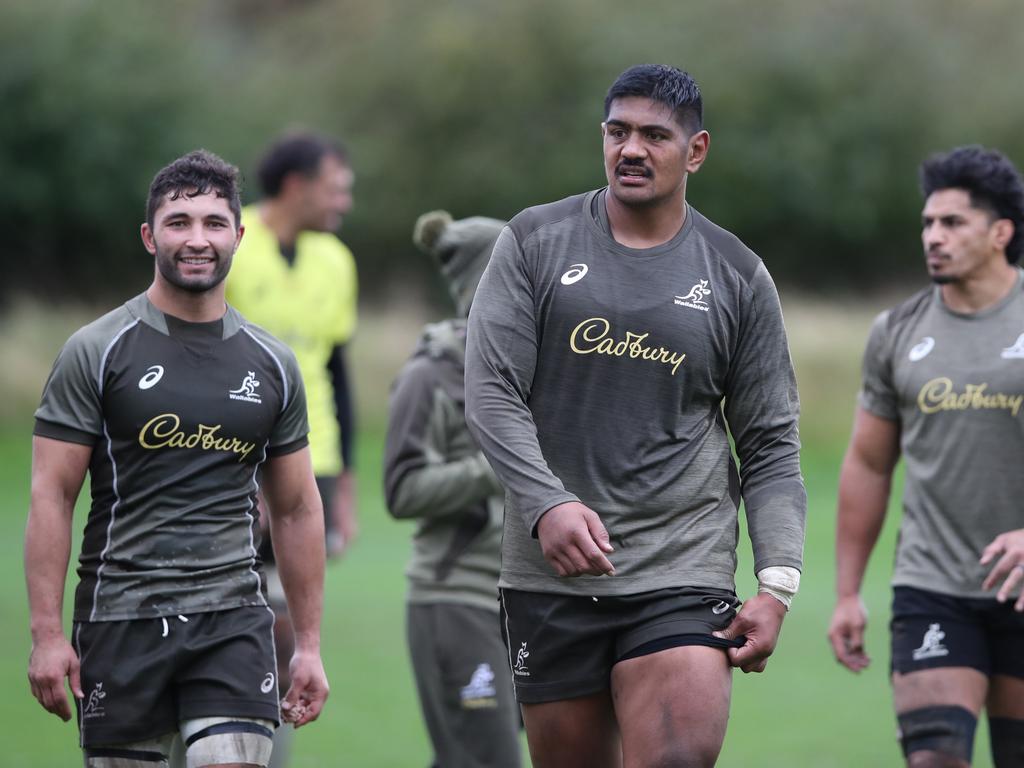

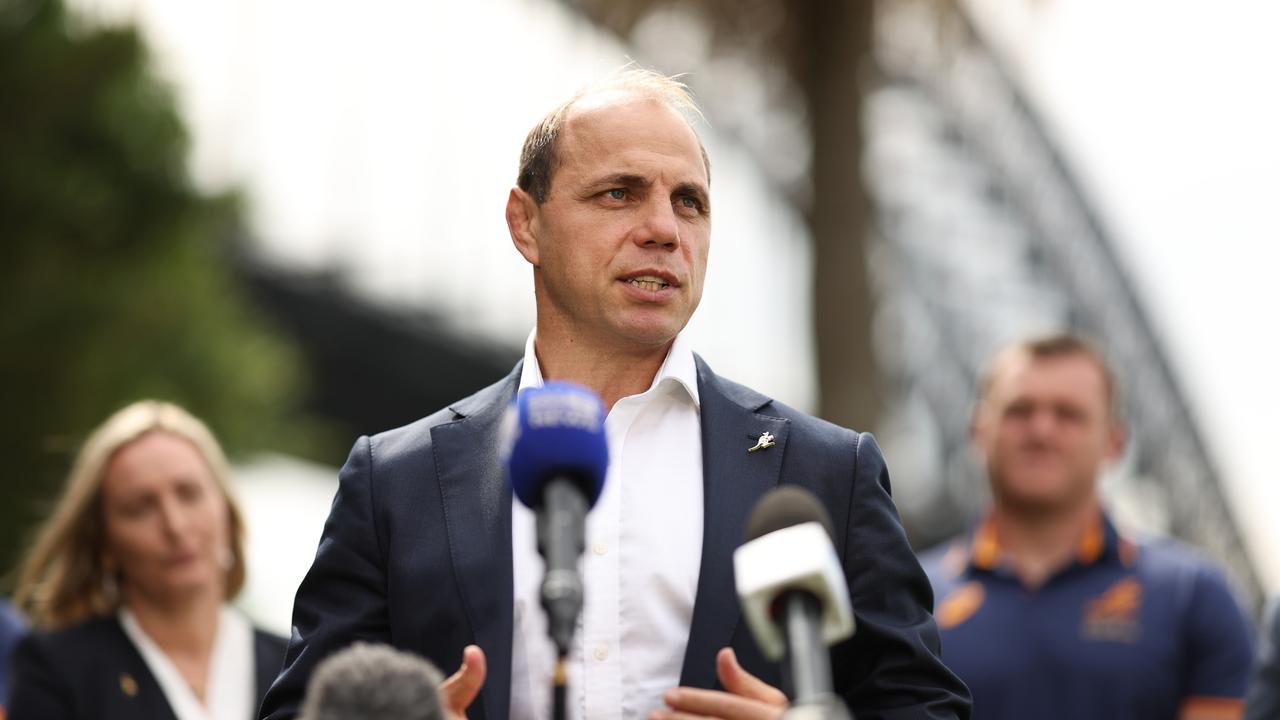
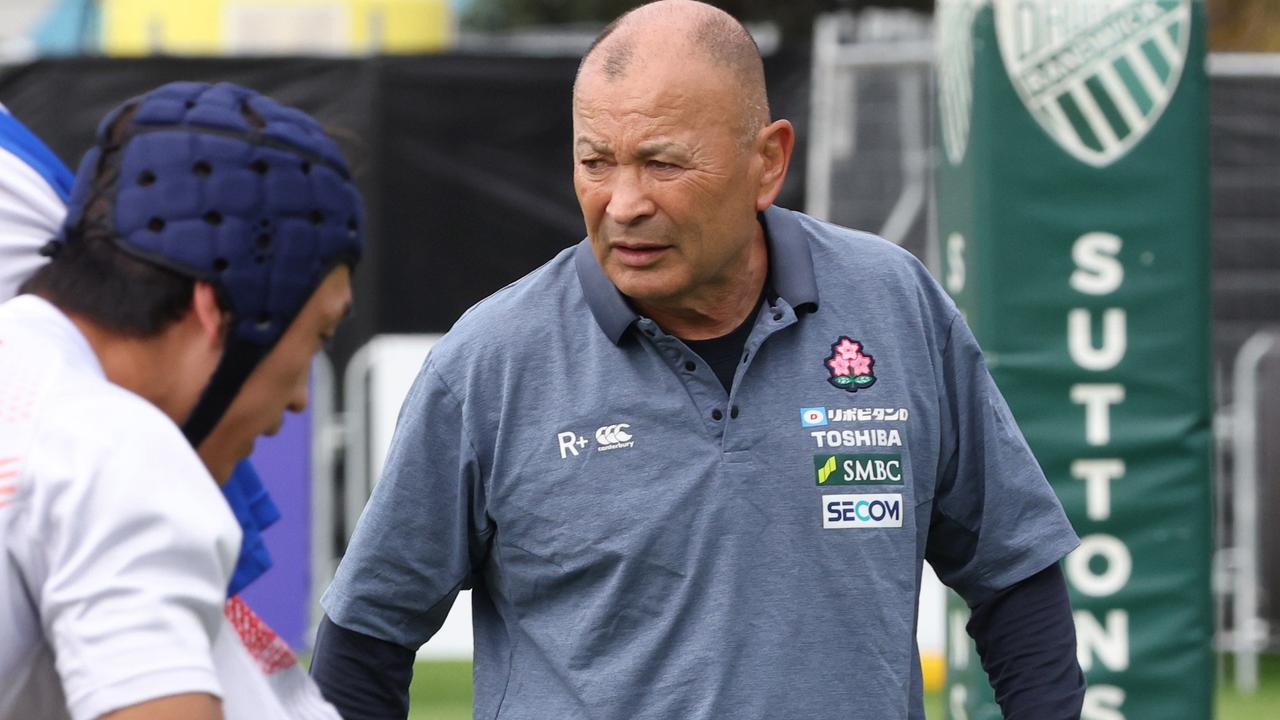
Well, the old traditional encounter awaits, England v Australia.